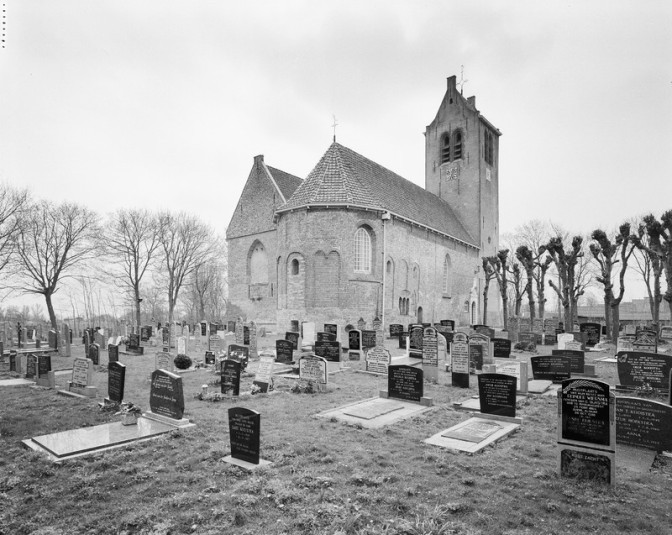TL read the tip that you should check church records after 1811 and wants to know where these records are kept, particularly for the province of Groningen.
When the civil registration was introduced in 1811 (or slightly earlier in some parts of the Netherlands), churches were required to turn over their registers of baptisms, marriages, and burial to the government. There is no such requirement for later church records.
Although churches are free to determine where to keep their records, many have turned their older records over to local or regional archives. Some records are even available online or via scanning-on-demand, like the baptismal registers for Etten-Leur, where some of my mother’s family came from. The availability depends on the agreement between the church and the archives. The same privacy laws apply so church records of people born less than 100 years ago should not be available to other people.

Baptism of Maria van der Strate in Etten on 2 September 1864. She was born out of wedlock. Unfortunately, the baptismal record does not list her father.
Here are the steps I take to find out what records may exist.
- Check online finding aids of local and regional archives. Search for the name of the town combined with terms like “hervormd*” [reformed], “katholiek*” [catholic], “kerk” [church] or filter for “religie” [religion] as record type. For Groningen, many archives are described at Groninger Archiefnet and Archieven.nl.
- Contact the church. If I cannot find the records in online finding aids, I will contact the church to ask where their records are kept.
- Contact documentation centers for the religion, like the Katholiek Documentatiecentrum [Catholic documentation center] or the HDC Center for Religious History to ask if they know where the records are kept.

Churchyard in Rinsumageest. Credits: J.P. de Koning, Rijksdienst voor Cultureel Erfgoed (CC-BY-SA)

